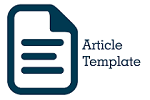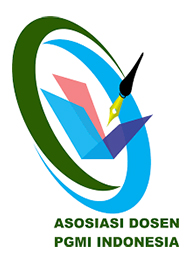- Focus and Scope
- Section Policies
- Peer Review Process
- Open Access Policy
- AUTHOR FEES
- PUBLICATION ETHICS
Focus and Scope
1. Innovation of Curriculum,
2. Instructional Design,
3. Learning Styles,
4. Learning and Teaching,
5. Media Development,
6. Teaching Methods and Strategies,
7. Developing Teaching Materials, and
8. Developing Learning Evaluation
Section Policies
Articles
Peer Review Process
Review Policy of IJEETI
Every articles will be reviewed by the reviewer.
The review process using a double Blind Review, meaning that the reviewer does not know the identity of the author, and the author did not know the identity of the reviewer.
In the process of review, the reviewer gave consideration related to the suitability of the title, abstract, introduction, research methods, results and discussion and conclusions. Addition reviewer also gave consideration associated with novelty, scientific impact, and references used.
Open Access Policy
This journal provides immediate open access to its content on the principle that making research freely available to the public supports a greater global exchange of knowledge.
AUTHOR FEES
This journal charges the following author fees :
Article Submission : 0.00 (IDR)
Authors are required to pay an Article Submission Fee as part of the submission process to contribute to review costs.
Article Publication : 500.000 (IDR)
If this paper is accepted for publication, you will be asked to pay an Article Publication Fee to cover publications costs.
PUBLICATION ETHICS
IJEETI: Indonesian Journal of Elementary Education and Teaching Innovation. Investigated the dynamics of learning of children at the primary level / Madrasah Ibtida'iyah. Additionally, focus of study examines the development of basic education issues
A. Duties of Authors
- Author should present the result of thought or research article clearly, honestly, without plagiarism and manipulation of data in accordance with the template of the journal IJEETI
- The author is responsible for the confirmation which was filed on articles that have been written.
- Authors must comply with the publication requirements of originality in the form of work, not plagiarism, and has never been published in journals or other publications.
- Authors should indicate the reference of the opinions and work of others who quoted
- The author must write a script or articles ethically, honestly and responsibly, in accordance with the applicable rules of scientific authorship.
- The author may not post / publish the same article to more than one journal or publication.
- The author does not mind if articles experience editing without changing the basic idea substance or article.
B. Duties of Editor
- The Editor responsible in deciding decent article published by the editorial board meeting. Editor guided by the policy of the editorial board of the journal and are limited by applicable legal requirements regarding libel, copyright infringement and plagiarism.
- In the process of acceptance of the article, a team of editors to use the principle of similarity of treatment.
- In the process of reviewed decision journals and publications (articles), the editorial team is not ethnicity, religion, race and groups (SARA) writer.
- Editors and editorial team will not disclose any information about manuscripts or articles that enter except by permission of the author.
- Manuscripts (articles) are not published in editions running, if they meet the eligibility and in accordance with the scope of the journal Literasi will be publish in the next edition.
- Manuscripts (articles) are not within the scope of the journal Literasi will be returned to the author.
C. Duties of Reviewers
Reviewers assist the editor in making editorial decisions on manuscripts / articles that go:
- Reviewers responsible for the recommendation which was reviewed
- Manuscript reviews conducted objectively, and be supported by clear arguments.
- Reviewers are responsible for quotations, references and plagiarism on articles reviewed.
- Reviewers keep confidential information for personal gain.







